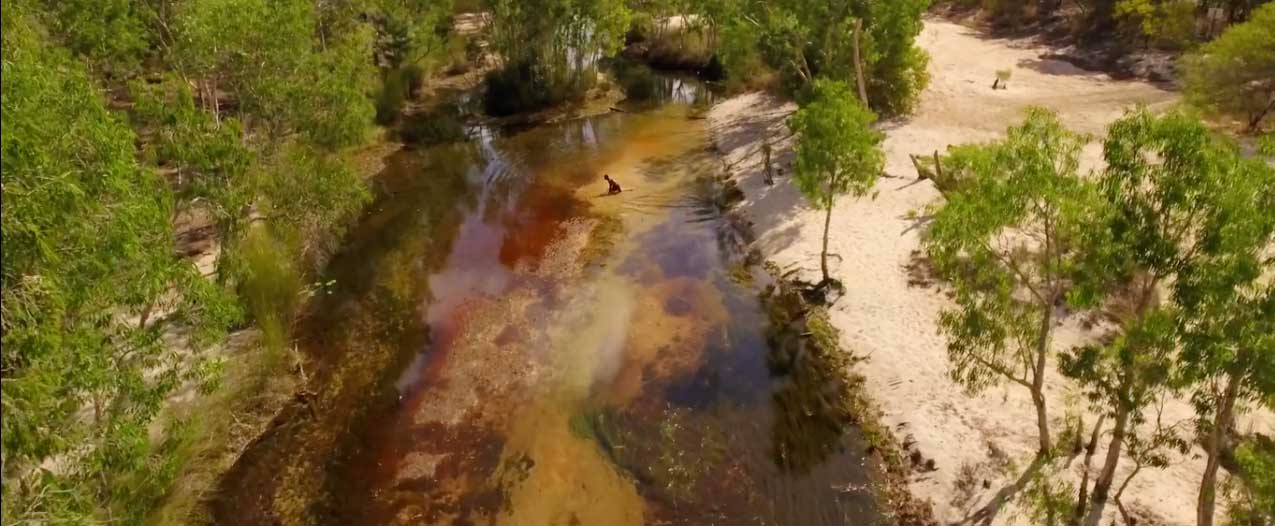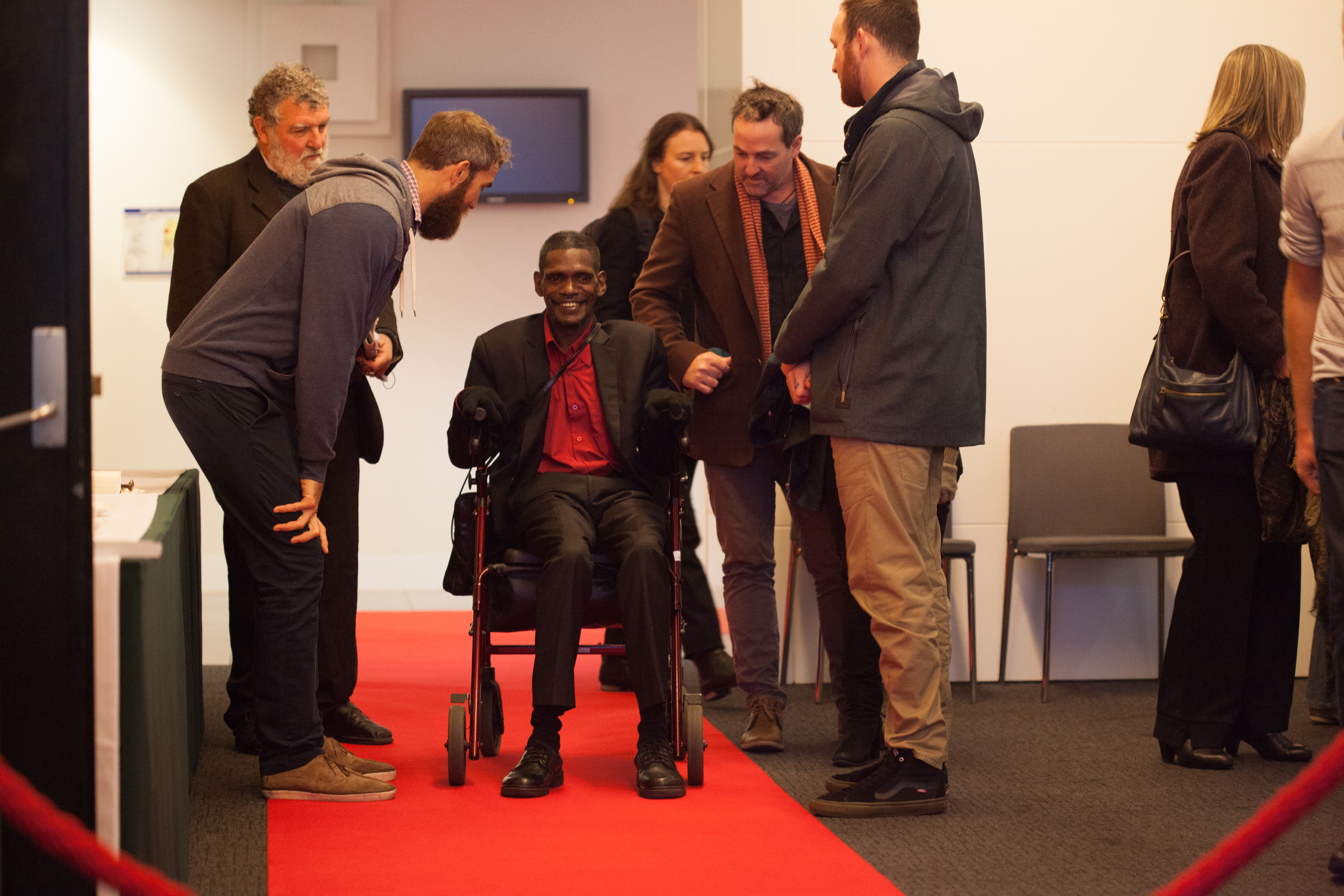Groote Eylandt is an ancient and spectacular land, but one that also harbours a tragic secret. A dark secret that Steve ‘Bakala’ Wurramara travelled some 4304km to reveal to the world…
View Trailer
Steve ‘Bakala’ Wurramara comes from an island in the Gulf of Carpentaria, called Groote Eylandt.
To get there from Darwin, you must first fly 1.5 hours across the striking landscape and deep red earth of the Northern Territory, with the final 20 minutes over captivating cerulean blue waters.
It’s a remote island in North East Arnhem Land and the traditional country of the Anindilyakwa people, Bakala’s people. It’s an ancient and beautiful land, but it protects a tragic, once secret story.
It was a secret of shame and blame. And it remains the story of the struggle of this proud and ancient people with an old and deadly foe, a fatal inherited disease called Machado Joseph Disease (MJD).
Bakala lives on Groote Eylandt amongst a population of around 1,100 Aboriginal Australians.
First experiencing symptoms of MJD in his late teens, Bakala has lived with the progressive onset of this insidious and debilitating neuro-degenerative disease his entire adult life.
While working on an MJD Foundation clinical education project in 2015, a filmmaker from Zakpage spent much of his time on Bakala’s traditional country. In a serene swimming hole, Bakala revealed to him a somewhat whimsical, though heartfelt desire. He wanted to find a cure for MJD somewhere there, out on country, from the land itself.

Maybe from a plant or a balm or even a ceremony, or a practice. Magic, and the belief in its presence and power, is still strong among the Anindilyakwa people. Talk of curses and sorcery are never far from local conversation.
As that day ended, Bakala, backlit by the golden remains of the day, stood in the river, a vision as old as time, and thanked his ancestors for giving him this life and this country.
An idea started to foment in the recesses of the filmmaker’s imagination, and ‘Bakala’ the film was born.
Bakala is also well known to Telstra. What started in 2010 as a tiny seed grant from the local Country Women’s Association to purchase a few iPads, caught the Telstra Foundation’s attention. And in 2013, the Telstra Foundation partnered with the MJD Foundation to fund a communication program incorporating a research component to explore the use of digital technology to help people living with MJD.
It’s this partnership that led to Telstra rolling out the red carpet at its headquarters in Melbourne to welcome Bakala who flew 4304km to premier his film. Telstra employees from across the organisation came together as part of NAIDOC Week to welcome Bakala to Melbourne and hear his story.

MJD is a cruel and complex disease, robbing those who have it of their independence and dignity.
It occurs in families, with each child of an affected person at a 50% risk of developing the disease themselves, almost always at an earlier age than their parent.
Although it’s a rare disease, the incidence of MJD in these communities is the highest in the world, and is now known to have entered the North East Arnhem families through Chinese traders many centuries ago.
By telling his story, Bakala is hoping to raise funds for the MJD Foundation’s Research Program to continue to search for a treatment for Machado Joseph Disease. Of funds raised through the film, 100% will go directly to research with no overhead costs.


Recent Comments